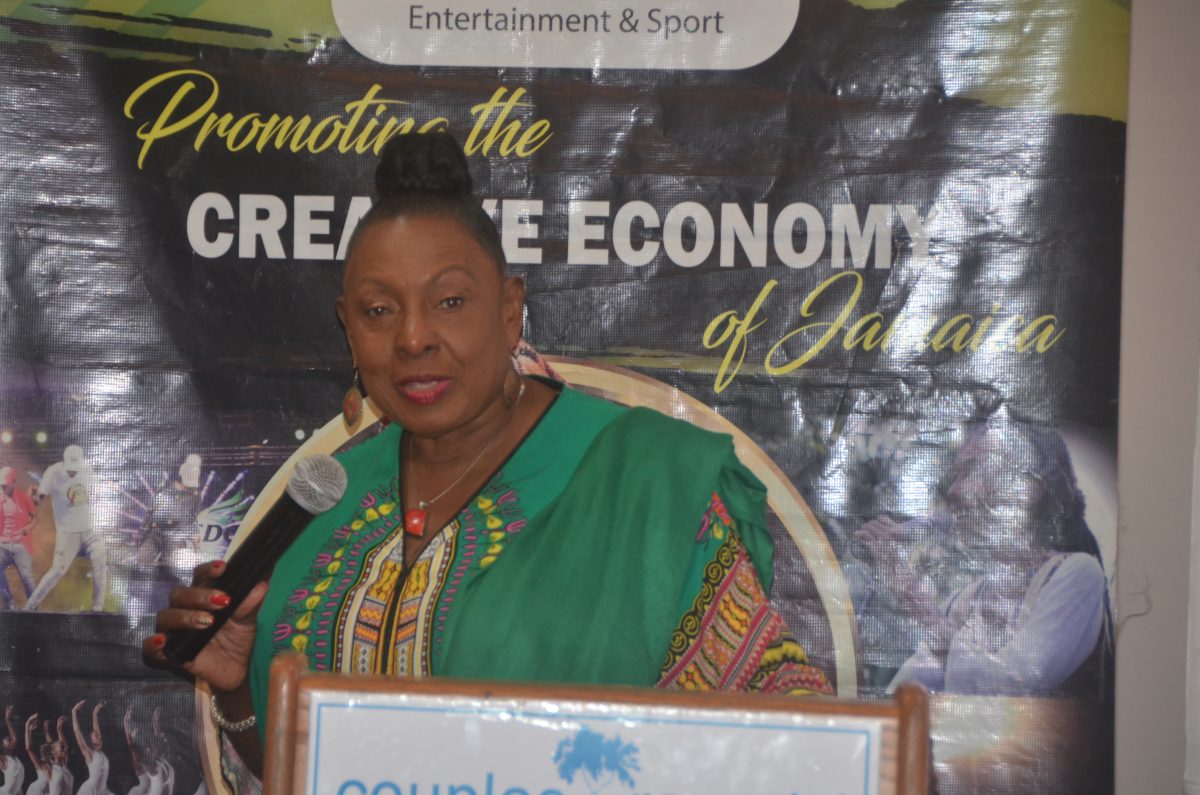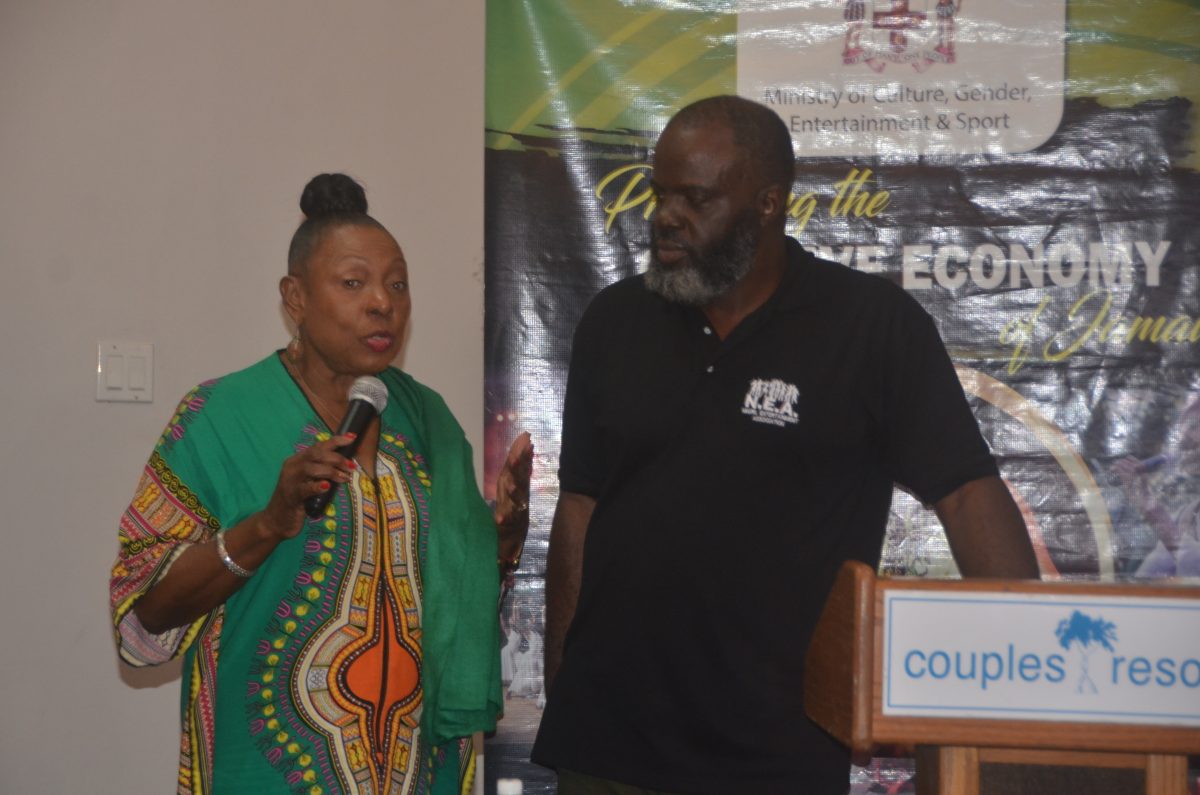Jamaican Music Is Not “Noise” – Minister Babsy Grange

Minister of Entertainment and Culture Olivia “Babsy” Grange has reaffirmed that Jamaican music ought not to be classified as “noise,” as exists under the Noise Abatement Act, as the issue of sound management “is an environmental issue, and not singularly (caused by) entertainment.”
Speaking at the Negril Entertainment Association’s conference on Saturday, the former Specs/Shang executive said that her Ministry, in making its input to the amendment of the Noise Abatement Act, had not only recommended that the legislation be re-named the Sound Management Act, but that several other suggestions put forward by members of the entertainment industry be considered.
“The Noise Abatement Act I know, is high on the agenda of Negril for promoters, venue owners and entertainers. And in this regard 2020, pre COVID- we in my Ministry forwarded to the Ministry of National Security, amendments to the act, among other things to rename the act – to rename it the Sound Management Act because we don’t see our music as noise,” Grange stated.
“And, that the regulations be changed from the Noise Abatement to Guidelines to propose Sound Management Regulations,” she added, evoking a round of applause from the attendees.
In continuing her explanation, Grange, who is a former manager for Shabba Ranks, Patra, and Bounty Killer, posited that the Act essentially lumps music with undesired sounds, such as noise emitted from construction sites and factories.
“So this broader terminology demonstrates that the issue of sound management is an environmental issue, not singularly entertainment. And sound encompasss noise emitted from factories, from active construction sites, et cetera which constitutes high levels of persistent, noise nuisances during the daytime,” she stated.
“It therefore means the act is value neutral as the name in and of itself suggests that music is noise and I have always been opposed to this idea and I know you all share my view. Entertainment is not noise,” the St. Catherine Central Member of Parliament reaffirmed.
The Minister also said that the use of decibel meters, a recommendation made by the Negril Entertainment Association from as far back as 2010, was also a part of the Ministry’s recommendations to the amendment of the Noise Abatement Act.
“My Ministry further recommended the use of decibel meters to scientifically determine the actual decibels of say, a sound system playing at Bourbon or at Wavz Beach, rather than the subjectivity that has affected our entertainment narrative,” she said.
“I am pleased to see that just this month, the JCF introduced the use of decibel meters, as a policy…in relation to decibel meters I recommended amendments from my Ministry made to the Noiuse Abatement Act that within the context of development planning – and that’s very, very important – so we also suggested that in relation to development planning that NEPA employs the terminology ‘zones’ to refer to the different areas of land designated for specific activities,” she said.

Back in January 2015, NEA president Ryan Morrison had called for the inclusion of the use of decibel metres to measure sound levels in any proposed amendment to the Noise Abatement Act as it would serve to enable party promoters and non-partygoers to peacefully co-exist.
He had also said that the key element of the Noise Abatement Act which prohibits the emanating of sound “audible beyond a distance of 100 metres from the source” was subjective, and impractical to enforce, as it was not measurable and, because it depended on persons’ interpretation, could be easily manipulated.
“An annoyance can mean anything … me and you know say a man a run a 4X100 metre relay, you can speak to di man dung a di next side… So, the law is not practical, because there is no way that I can talk and you hear it a hundred metres away, and then you can tell me that you going lock down an event because there is a disturbance, and that as long as it is audible 100 metres away I have breached the Noise Abatement Act,” Morrison had argued.
“If they said it must not measure more than, for example, 60 decibels beyond 100 metres, then that is something that we can live with…. We must have an agreed decibel level… Some measurable thing for sound rather than ‘audible beyond a hundred metres’, that is, decibel metres,” he added then.
